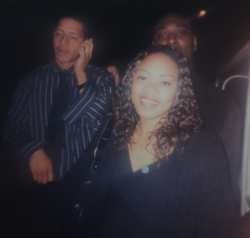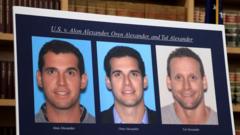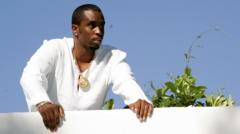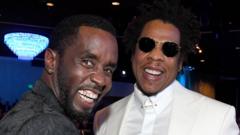This article examines Sean "Diddy" Combs's transition from a celebrated icon of the entertainment industry to facing serious legal allegations, including sex trafficking and racketeering, shedding light on the darker aspects of his lavish parties and lifestyle.
**The Rise and Fall of Sean "Diddy" Combs: From Party King to Allegations of Misconduct**
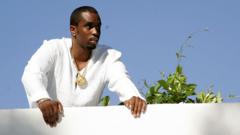
**The Rise and Fall of Sean "Diddy" Combs: From Party King to Allegations of Misconduct**
Exploring the complex narrative behind Diddy's glamorous lifestyle and the serious charges against him.
Sean "Diddy" Combs, once celebrated as the "party king" of New York, built a reputation on star-studded events featuring celebrities like Justin Bieber, Mariah Carey, and Jennifer Lopez. His grand parties not only provided an opportunity for celebrities to mingle, but also allowed Diddy to maintain his prominence in the ever-changing landscape of the entertainment industry. However, as new allegations emerge, this image of glamour has soured amidst accusations of serious legal transgressions.
Recently, Diddy has faced extensive charges including sex trafficking, racketeering, and a series of civil lawsuits alleging assaults and sexual misconduct involving multiple victims. While he continues to deny all accusations through his legal representatives, who describe the lawsuits as opportunistic attempts at publicity, the gravity of the allegations raises concerns about the culture within the industry surrounding power, fame, and accountability.
Diddy's ascent began with the founding of Bad Boy Records in the early 1990s, which launched the careers of iconic artists like the Notorious B.I.G. He expanded his influence through ventures in fashion, entertainment, and reality television. According to Rob Shuter, a former publicist for Diddy, the rapper's obsession with fame and power drove him to cultivate a larger-than-life persona, manifesting in extravagant parties that attracted elite guests.
However, behind the facade of glamour, various legal actions paint a troubling picture. Lawsuits detail instances of alleged sexual assaults and exploitation at Diddy's famed "White Parties," events designed to bridge the gap between different social and racial communities. Yet, critics argue that these celebrations served as a cover for inappropriate activities. Allegations ensue about incidents involving underage attendees and coercive behavior, as some victims report they were intimidated due to Diddy's industry standing.
Amidst a swirl of accusations that surfaced in a single year, including a pivotal lawsuit from his former girlfriend Cassie who described a controlling and abusive relationship, those on the fringes of Diddy's realm also began to voice their experiences. Survivors of his alleged misconduct express hope that the case will foster significant change within the entertainment sector, challenging the culture of silence around abuse and misconduct.
Gloria Allred, a noted women's rights attorney, represents several accusers, including Thalia Graves, who alleges she was assaulted by Diddy decades ago. She believes the ongoing legal battles will reveal deeper systemic issues in how powerful figures in the music industry wield their influence. As more voices join the chorus of accusations against Diddy, the hope grows that these revelations might lead to genuine accountability.
As Diddy awaits trial, slated for May 2025, the dichotomy of his legacy as a celebrated music mogul and a figure ensnared in controversy creates a complicated narrative about fame, power, and the impact of alleged abuses on the lives of those touched by his influence.


